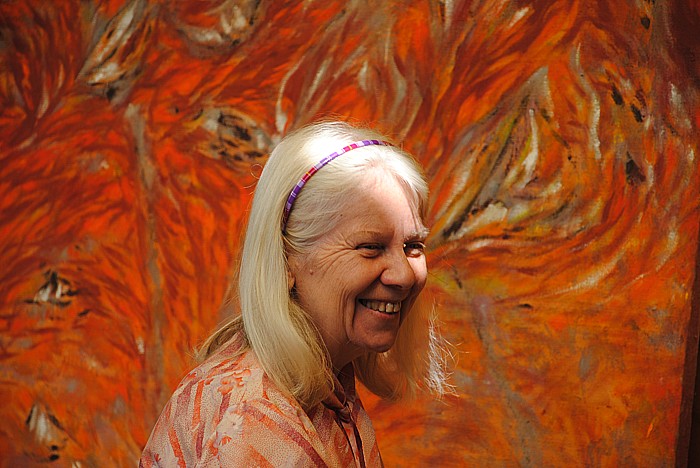Zahradní ateliér / Garden Atelier
____________________________________
Přítomnost hudby ve Vaculovičově malířském díle zakládá nejen mimořádný smysl pro rytmus a harmonii, ale především abstraktní mnohoznačnost. Jakkoli jsou Vaculovičova díla nositeli atakujících a hlubokých obsahů, tato mnohoznačnost neustále znejišťuje jejich přesný význam a brání jej před rozumovým a jasným uchopením. Osamocené postavy se ve Vaculovičových obrazech proměňují v neartikulovanou hmotu, která je současně embryonálním stavem lidského bytí i posledními věcmi člověka. Jinde se odhmotňují do té míry, že nejsou než tušeným epicentrem živelného proudění energií. Dematerializací lidského korpusu se Vaculovič přibližuje naturalismu neúprosné „baconovské" syrovosti. Vaculovičův cyklus Pokušení na poušti znepokojuje právě tím, že balancuje na ostří těchto protikladů, že poukazuje na komplexnost mezních situací a že tak přesahuje tabu svých křesťanských východisek.
Martina Pachmanová
Vysoka skola umelecko-prumyslova v Praze
Academy of Arts, Architecture and Design in Prague
The presence of music in Vaculovič's painters' work originates not only an outstanding sense for rhythm and harmony, but especially the abstract variety of meanings. Although Vaculovič's works bear the attacking and deep contents, this variety of meanings vacillates their strict significations, and defends these significations from the rational and clear understanding.
. In Vaculovič's paintings, the lonely figures change into the unarticulated matter which is both an embryonal state of the human existence and man's last things. Somewhere else, these figures are dematerialized as much that they are not more than the anticipated epicentre of an elemental stream of energies. Using an unmerciful dematerialization of the human body, Vaculovič comes near to the naturalism of the inexorable "Bacon-like" rawness. Vaculovič's cycle "Temptation" disturbs just by ballancing at the edge of these antitheses, by pointing out the complexity of the final situations, and by extending beyond the taboos of the Christian basis.
Martina Pachmanová
Academy of Arts, Architecture and Design in Prague




